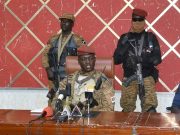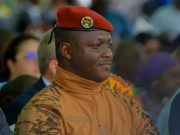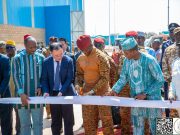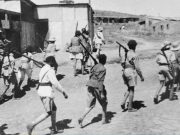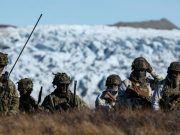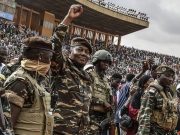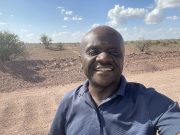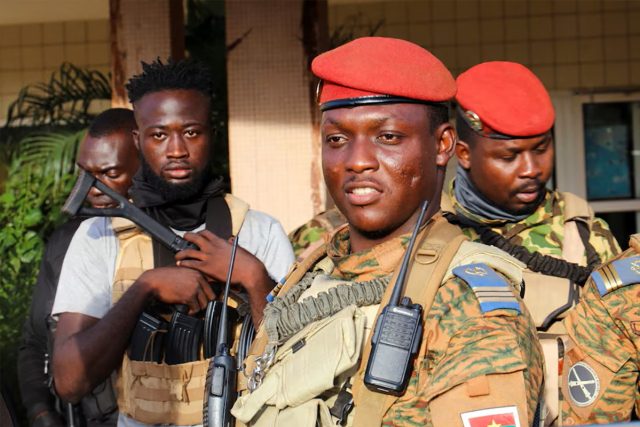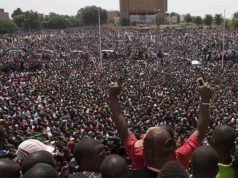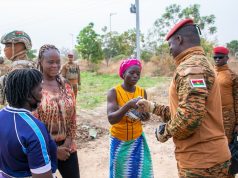The following year, 2018, proved to be a pivotal year for Traore. He was promoted to Captain and thrust into a complex and volatile situation when he joined the United Nations Multidimensional Integrated Stabilization Mission in Mali (French: Mission multidimensionnelle intégrée des Nations Unies pour la stabilisation au Mali, MINUSMA)
This deployment marked a crucial chapter in his military career, exposing him to both the challenges and responsibilities of international peacekeeping. Established in 2013, MINUSMA was tasked with stabilizing Mali after Islamist militants, bolstered by the fallout from Libya’s collapse, seized control of much of the country’s northern regions. The French military’s intervention had pushed the militants back, but the threat remained, and the mission for the UN’s blue helmets was to maintain order in a landscape marked by shifting alliances, insurgencies, and an uncertain future.
Traoré’s involvement in MINUSMA placed him in the heart of a multidimensional conflict. The mission entailed keeping the peace, helping Mali rebuild its fractured military, and restoring stability to a nation on the brink of collapse. As part of this Force, Traoré experienced firsthand the complexity of modern peacekeeping, where soldiers were expected to do more than monitor ceasefires. Instead, they had to dismantle terrorist cells, secure volatile regions like Timbuktu, and enable political dialogue.
Traoré’s time in Mali shaped his understanding of insurgency, civilian protection, and the geopolitical forces at play in West Africa. It also instilled in him a strong sense of how external powers like France and the United Nations impacted the internal dynamics of African nations, for better and worse. This would later inform his views on Burkina Faso’s future and his deep skepticism of Western influence.
The peacekeeping mission tested Traoré’s leadership and exposed him to the international dimensions of warfare. As a soldier in MINUSMA, he witnessed the devastating effects of militant insurgencies and the fragility of state power in the face of extremist threats. The mission’s mandate to rebuild the Malian armed forces and facilitate national elections reflected a larger vision of restoring civilian rule. Though his role was to maintain peace, Traoré was often thrust into situations that demanded combat readiness, with insurgents always lurking on the fringes, ready to exploit any weakness. These experiences would become critical in shaping his future leadership, especially as he would later take command of Burkina Faso amid its own insurgency crisis.
Through his time in Mali, Traoré began to see the limitations of foreign-led peacekeeping missions. He understood the delicate balance between stabilizing a country and imposing foreign solutions on its people.
The United Nations’ blue helmet became a symbol of international intervention, but it also underscored the importance of African nations solving African problems. Traoré’s experience with MINUSMA, where international forces worked to secure Mali while contending with the complexities of local grievances, foreshadowed the tensions he would later navigate as a leader in Burkina Faso. The lessons he learned under the UN’s blue helmet would shape his approach to governance, war, and the fierce independence he now champions as Burkina Faso’s president.
